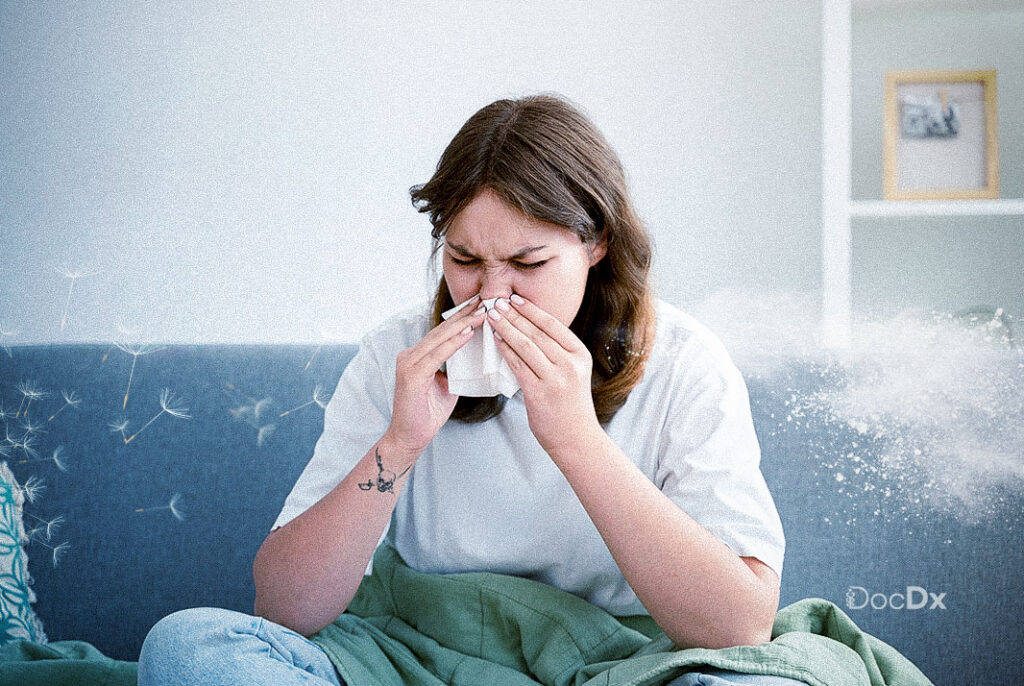Allergies can be a frustrating and sometimes debilitating part of life. Whether it’s sneezing your way through spring, breaking out in hives after eating a certain food, or itching every time you pet your cat—allergy triggers are everywhere. The good news? You can take control by learning more about what causes your reactions and how to steer clear of them.
This guide will break down the most common allergens—including seasonal allergens, food allergens, pet allergies, and allergens in the home—and share real-world tips for skin allergies prevention and overall allergy management.
What Are Allergens?
Allergens are typically harmless substances that cause an immune response in people with sensitivities. Your body sees the allergen as a threat and goes on the defense, releasing histamines that lead to symptoms like sneezing, swelling, rashes, or worse.
These reactions can vary from mild discomfort to life-threatening conditions like anaphylaxis. The key to prevention is identifying your personal triggers—and that’s where proper testing and awareness come into play.
If you suspect allergies, allergy testing services and treatment in Maryland are a great place to start.
1. Seasonal Allergens: Pollen, Grass & Mold Spores
Every spring and fall, millions of people feel like they’re battling nature itself. Seasonal allergens like tree pollen, grass pollen, ragweed, and mold spores are major culprits for itchy eyes, sneezing fits, and congestion.
How to Reduce Exposure:
- Keep windows closed during peak pollen hours (usually early morning).
- Shower and change clothes after being outside.
- Use HEPA filters in your home.
- Check daily pollen counts and plan activities accordingly.
For a deep dive into how allergies are tested and diagnosed, read our guide on what to expect during allergy testing.
2. Food Allergens: From Peanuts to Shellfish
Food allergens are among the most serious because of the potential for severe reactions. The most common culprits include:
- Peanuts and tree nuts
- Milk and dairy
- Eggs
- Shellfish and fish
- Soy and wheat
Symptoms can range from mild digestive issues to hives and even anaphylaxis.
How to Stay Safe:
- Read food labels carefully—every time.
- Communicate clearly when dining out.
- Carry an epinephrine auto-injector if prescribed.
- Introduce new foods to children gradually and under supervision.
For those with ongoing respiratory reactions tied to food or environment, sometimes asthma is involved. Learn more about when to seek help from an allergist for asthma treatment.
3. Pet Allergies: Cats, Dogs & Other Furry Friends
We all love our furry companions—but for some, they come with sniffles, red eyes, or wheezing. Pet allergies are triggered by proteins found in pet dander, saliva, and even urine—not just fur.
Tips to Coexist with Pets:
- Bathe your pets regularly (if they tolerate it).
- Keep them out of the bedroom.
- Use air purifiers and vacuum frequently with a HEPA vacuum.
- Wash hands and clothes after cuddling.
Some people consider hypoallergenic breeds, but even those can cause reactions. It’s about reducing exposure, not eliminating it entirely.
4. Allergens in the Home: Dust Mites, Mold, Cleaning Products
Believe it or not, your house might be the source of many allergy symptoms. Allergens in the home often include:
- Dust mites: Microscopic pests living in bedding and upholstery.
- Mold: Grows in damp areas like bathrooms and basements.
- Cleaning chemicals: Strong scents or harsh ingredients can irritate the skin and lungs.
- Fragrances: Found in candles, sprays, and laundry products.
How to Allergy-Proof Your Home:
- Wash bedding in hot water weekly.
- Use allergen-proof covers on pillows and mattresses.
- Fix leaks and reduce indoor humidity below 50%.
- Choose fragrance-free and hypoallergenic cleaning products.
Routine cleaning helps—but so does regular health checkups to monitor and treat symptoms early. DocDx primary care services can help create a care plan tailored to your specific triggers.
5. Insect Sting Allergies
Reactions to bee, wasp, hornet, or fire ant stings can be mild—or dangerously severe. If you’ve ever experienced swelling, hives, or difficulty breathing after a sting, you may have an insect allergy.
Safety Tips:
- Wear closed-toe shoes outside.
- Avoid sweet drinks outdoors.
- Don’t swat at flying insects.
- Carry an epinephrine injector if prescribed.
If you’ve never been tested but suspect you have a reaction, allergy testing can confirm your sensitivities and help you plan for emergencies.
6. Skin Allergies: Contact Dermatitis & Prevention Tips
Skin allergies are another common issue, usually caused by direct contact with irritants or allergens. Symptoms include:
- Itchy rashes
- Red, scaly skin
- Blisters or dry patches
Common triggers:
- Nickel (in jewelry)
- Latex
- Soaps and detergents
- Poison ivy
Skin Allergies Prevention Tips:
- Use gentle, fragrance-free skincare products.
- Avoid known irritants (check labels).
- Moisturize regularly to maintain a healthy skin barrier.
- Wear gloves when cleaning or doing dishes.
If rashes keep returning, schedule allergy testing to get to the root of the problem. Treatments may include topical steroids, antihistamines, or lifestyle changes.
When Should You Get Allergy Testing?
Not sure whether it’s just a cold or a full-blown allergy? Here are some signs it’s time to test:
- Persistent sneezing or congestion
- Chronic skin rashes
- Trouble breathing or wheezing
- Symptoms tied to specific triggers (pets, seasons, foods)
You can start the process with professional allergy testing services in Maryland. The earlier you know your triggers, the better equipped you’ll be to manage or even eliminate them.
The Role of Primary Care in Allergy Management
Your primary care provider plays a huge role in keeping allergies in check. They can:
- Monitor symptoms
- Prescribe medications
- Refer you to an allergist
- Help you manage related conditions like asthma or eczema
Whether you’re dealing with seasonal sniffles or year-round reactions, DocDx’s comprehensive primary care services make it easier to stay on top of your health.
Conclusion
Allergies are a daily challenge for millions—but they don’t have to control your life. By understanding your allergy triggers—whether they’re seasonal allergens, food allergens, pet allergies, or allergens in the home—you can take proactive steps to minimize exposure and manage symptoms effectively.
Pair that with guidance from healthcare professionals and thoughtful lifestyle changes, and you’ll breathe easier—literally.
Ready to find out what’s behind your sneezing, itching, or breakouts? Get started with expert help at DocDx and start your journey to an allergy-free life.




